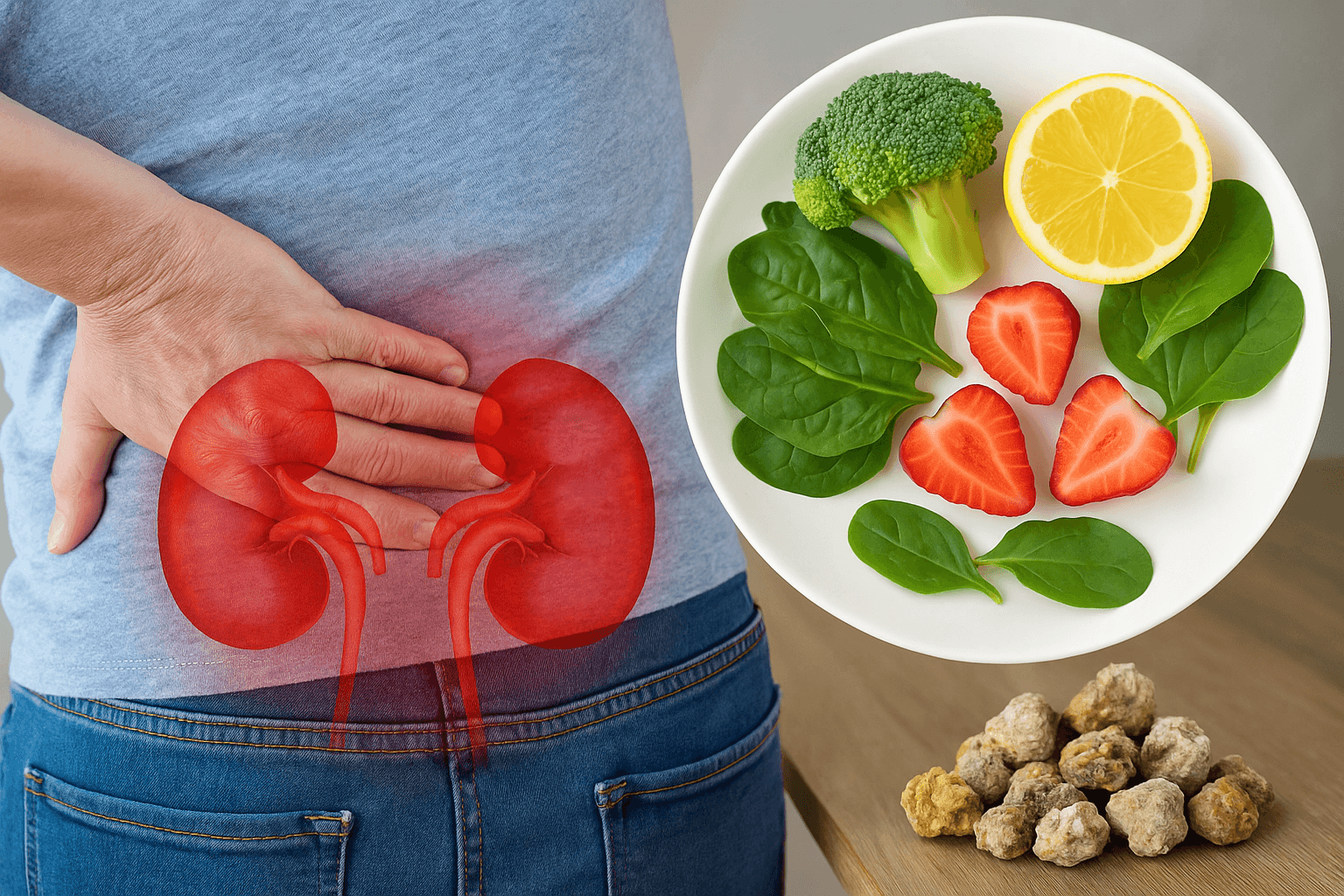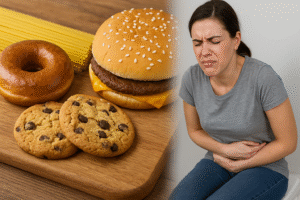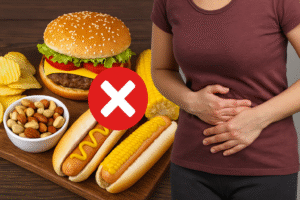If sometimes painful, they can knock your body out of its delicate balance. And who among us who has had a kidney stone wouldn’t eagerly agree to any advice that will prevent that from happening again? But the good news is that most of the time, if you can just return to a few basics in your diet and your daily routine, you’re going to knock your risk down quite a bit.
This will be your kidney stone diet owner’s manual. We’re going to show you simple steps to help to stay out of the pain of kidney stones.
Kidney Stones: What Are They and Why Do They Form?
Before we discuss what to eat and what to avoid in eating in detail lets know from simpler point of view on what are kidney stones.
Kidney stones refer to the hard granular material that builds up in the kidney. Tiny crystals precipitate in the urine in a manner similar to; apt also is the analogy of crystals precipitated from solution by over-concentration in respect of a particular substance—calcium, oxalate, uric acid. Over time, these things accumulate, and they become stones in the kidney and are incredibly painful when passed through the urinary tract.
So, Why Do Kidney Stones Happen?
There is not a single cause but a constellation of things that converge. What causes kidney stones in the first place?
- Dehydration: Failure to drink water is a leading cause of stone formation.
- Dietary choices: Eating too much salt, sugar or animal protein can increase risk.
- Medical conditions: Certain health problems, such as gout or urinary tract infections, raise your risk for kidney stones.
- Family history: If a member of your family has had stone, the likelihood of developing them increases for you.
With those basics in place, let’s talk about how you can tailor your diet so you’re protecting your kidneys.
Keep Yourself Hydrated – Water is Your Best Partner
If there’s one mantra to remember, it’s this: drink more water!
Your kidneys require adequate fluid to wash out waste. When you don’t have enough water, your urine gets more concentrated. See, that thick, yellow urine is the ideal growing conditions for stones.
Try to get in about 8 to 12 cups of fluids per day. Water is best, but you may also include other suitor drinks, like a milk, lemonade (with real lemons), or herbal teas. Tip: If your urine is light yellow or clear, you’re staying well-hydrated.
Tips for Keeping Water on Track:
- Take a reusable water bottle with you.
- Use the alarm on your phone to remind you to take a sip every hour.
- Toss in lemon or cucumber slices to Flavor.
Cut Back on Sodium (Salt)
Too much salt is not kind to your heart — or your kidneys. Elevated sodium levels cause your kidneys to release more calcium in your urine, and that increase can lead to stones.
Do not exceed 2,300 mg of sodium each day. That’s roughly a teaspoon of salt.
Easy Ways to Reduce Sodium:
- Check food labels and select those bearing a “low sodium” label.
- Restrict processed foods such as chips, canned soups and frozen meals.
- Jazz up meals with herbs and spices — not salt.
Monitor Your Oxalate Intake (But Don’t Freak Out)
Oxalate is a naturally occurring substance found in many plants foods. But here’s the rub — because when you consume a lot of oxalate and have too little calcium, the two bind together in your urine and create stones.
So should this leave you on a diet of junk food? Absolutely not!
Rather, combine high-oxalate foods with calcium-rich ones in the same meal. That way they would bind together in your stomach and exit your body through your poop instead of calcifying into stones.
Foods that Are Especially High in Oxalates:
- Spinach
- Beets
- Rhubarb
- Nuts (almonds and cashews in particular)
- Chocolate
- Sweet potatoes
Pro Tip:
If you’re sitting down to a spinach salad, consider crumbles of feta cheese, or drink a glass of milk alongside, to offset the oxalate.
Don’t Be Afraid of Calcium
This may seem counterintuitive, but adequate calcium can help to prevent stones. That’s because, as we’ve just learned, calcium binds to oxalate in your digestive system and prevents it from reaching your kidneys.
Try to obtain your calcium from food, rather than supplements, unless advised by your physician.
So calcium rich foods are:
- Low-fat milk and yogurt
- Cheese
- Leafy greens such as kale (low oxalates!)
- Fortified cereals and juices
Cut Back on Animal Protein
Things like beef, poultry, eggs, and seafood can raise the levels of uric acid in your body, one of the components of a few kinds of kidney stones.
If you are consuming a lot of meat or following a high-protein diet generally, maybe cut back.
Better Choices Include:
- Plant proteins such as beans and lentils
- Tofu and tempeh
- Eggs in moderation
Cut Back on Added Sugar and Sweetened Beverages
Sugary beverages — including sugared soda and sweetened juice — are no friend of the kidneys. They are high in fructose, which can raise stone formation.
And don’t even get us started on sodas that contain phosphoric acid — also associated with an increased risk.
Instead, go for:
- Water infused with fruit
- Unsweetened iced tea: (experiment with herbal flavors.)
- Unflavored sparkling water
Eat More Fruits and Veggies
Fruits and vegetables help maintain a more alkaline urine, which can reduce your risk for some types of stones. And they’re filled with vitamins, fiber and antioxidants!
Focus on:
- Oranges, Lemons, and Limes – Any citrus fruit
- Bell peppers, broccoli, cabbage etc.
Drink the fruit, not the juice
Let’s face it — none of us are perfect. You needn’t kill yourself to trim all pleasure from your life. The secret is to somehow make modest, smart swaps that compound over time.
Bonus Tips for Kidney Health
Here are a few more methods to give your kidneys some love:
- Moderate vitamin C supplements: Excess can make extra oxalate.
- Talk to your doctor: If you want a metabolic test, get one if you are otherwise interested (or if you’ve had stones before). It may reveal what is underlying yours.
- Hit the gym: Consistent exercise can balance out the minerals that cause stones, a regular physical activity can also reduce risk of developing stones.
Wrapping It Up
Just because you’re on a kidney stone prevention diet doesn’t mean you have to stop loving food. Actually, it’s mostly about balance and knowledge of how different food affects your body.
By:
- Staying hydrated
- Laying off the salt
- Pairing oxalate with calcium
- Watching animal proteins
- Opting for whole foods instead of processed ones
—you may decreasing your likelihood of getting kidney stones and boosting your overall health.
Remember: Always speak to your doctor or dietitian if you are making big changes to your diet or have a history of stones. All bodies are different, and what works for one person may not work for another.








